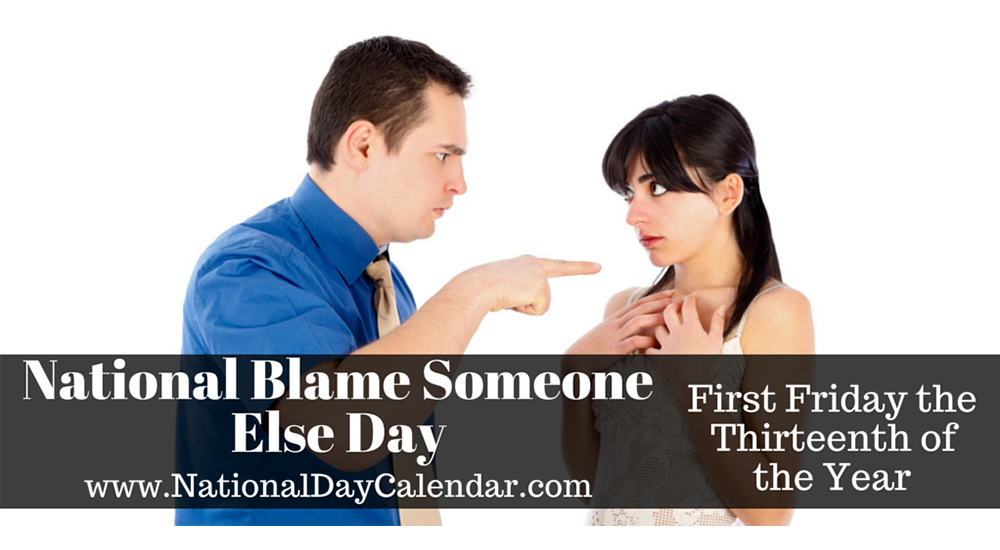
Its Not MY Fault Have Hearing Loss
Today is National Blame Someone Else Day! So let’s go over all of the reasons why having a hearing loss is not our fault (and see which ones are valid!):
1. “I played drums all through junior high and high school and nobody told me that it was too loud”
There’s truth to this one. Throughout the country, young adults are encouraged to participate in orchestra, band, or play an instrument without being educated about the effects of high-levels of noise exposure. To this end, we tirelessly advocate for new musicians to be made aware of the importance of following the safety precautions that are taken to protect their hearing. It’s not easy! Some school districts are better equipped at providing these services to their students. As parents, role models, community advocates – we have to teach new musicians how to play and generate music, in addition to protect their hearing so that it doesn’t fail them when they play Carnegie Hall or Lincoln Center.
2. “Those millennials…they don’t know how to talk! They mumble. I don’t really have a hearing loss, it’s that millennial mumbling”.
Unfortunately, there is truth here too… although it’s probably not only with millennials. How many times do you try to have a conversation with someone whose head is buried in their phone? If someone is looking down, you can’t hear them well. It’s simple physics – sound waves are just not directed towards you, the listener. We have less time than ever, we speak faster than ever before, and speech articulation is generally not as precise as it was 20 years ago. There is a lot of validity in this complaint. That being said, there are many of us who can still piece together parts of what we can hear to figure out the basic gist of what is said to us. However, if you take into account a hearing loss paired with verbal input that has speech sounds outside of your range of hearing, then the probability of miscommunication increases. It’s easy to ask a family member to speak up, look at you, or to avoid talking to you from the next room. However, if those adjustments do not help you hear better, the main culprit might be a hearing loss.
3. “I hear fine, the restaurants are too loud!”
Yes, restaurants have gotten louder and louder over the years! Restaurant owners genuinely believe that the louder the music is, the more one will eat and drink…thus increasing their bottom line. Additionally, restaurants commonly try to fill as many tables as possible, which means more people are in close proximity to your table. Loud music coupled with a lot of background conversations can make it very difficult to hear in a restaurant, even for the normal hearing individual. However, oftentimes a hearing loss that is easily compensated for in a quiet environment cannot be similarly compensated for in a noisy environment. Once the signal-to-noise ratio increases, your brain has more difficulty with separation. That’s why a hearing loss can make it difficult to hear in the presence of background noise, even if hearing in quiet is unaffected.
4. “The speakers on this TV are bad!” “The volume is not high enough!”
Did you know that speakers on new, cool flat screen TVs are not designed well for hearing? It’s true, the audio signal is somewhat compromised in the design. However, every television is different and if you find the need to increase the volume on all TVs, wherever you go– then it may not be just the TV. Also, televisions can distort the sound just enough that certain programs can be hard to understand with a hearing loss. If you find yourself understanding the news and commercials, but having difficulties with your favorite prime time sitcom or reality show – then the issue might be your hearing.
5. “I have too much to do! I have a lot on my mind- that’s why I can’t hear!”
A truer statement has never been made. These days we are busier, more stressed and more anxious than ever. With so much to do and a sensation of frustration, panic or anxiety – it becomes very hard to focus and process. In fact, the incidence of auditory processing disorders has steadily risen over the years. However, if your ability to retain information you hear or follow a conversation cohesively has reduced, then it’s a good idea to get a hearing evaluation to rule out hearing loss as a factor. Sometimes it’s not the pressure, stress, or “things to do” that reduces our understanding and processing – sometimes it’s the hearing loss we don’t realize we have on top of it all.
So today – and only today – you can blame someone or something else for your potential hearing loss! But the truth is, that if you can relate to one or more of these situations, then you may be experiencing a true reduction in your hearing. Untreated hearing loss is linked to a number of physical, cognitive, and emotional issues. These issues include cardiovascular problems, diabetes, dementia, and Alzheimer’s disease. Identification is important. Treatment of the hearing loss is necessary. We can be playful and jovial, but blaming other people or things for a potential hearing loss isn’t going to help matters. It’s best to schedule a hearing evaluation, identify if there is a problem. and develop a treatment plan to address the issue.
Regardless of who or what you blame today, admitting that you might have a hearing loss is the first step in addressing the issue. After all, the life you live should be filled with health, happiness, and good communication. We can’t look to anyone else for this- achieving these goals for ourselves is our own responsibility.



